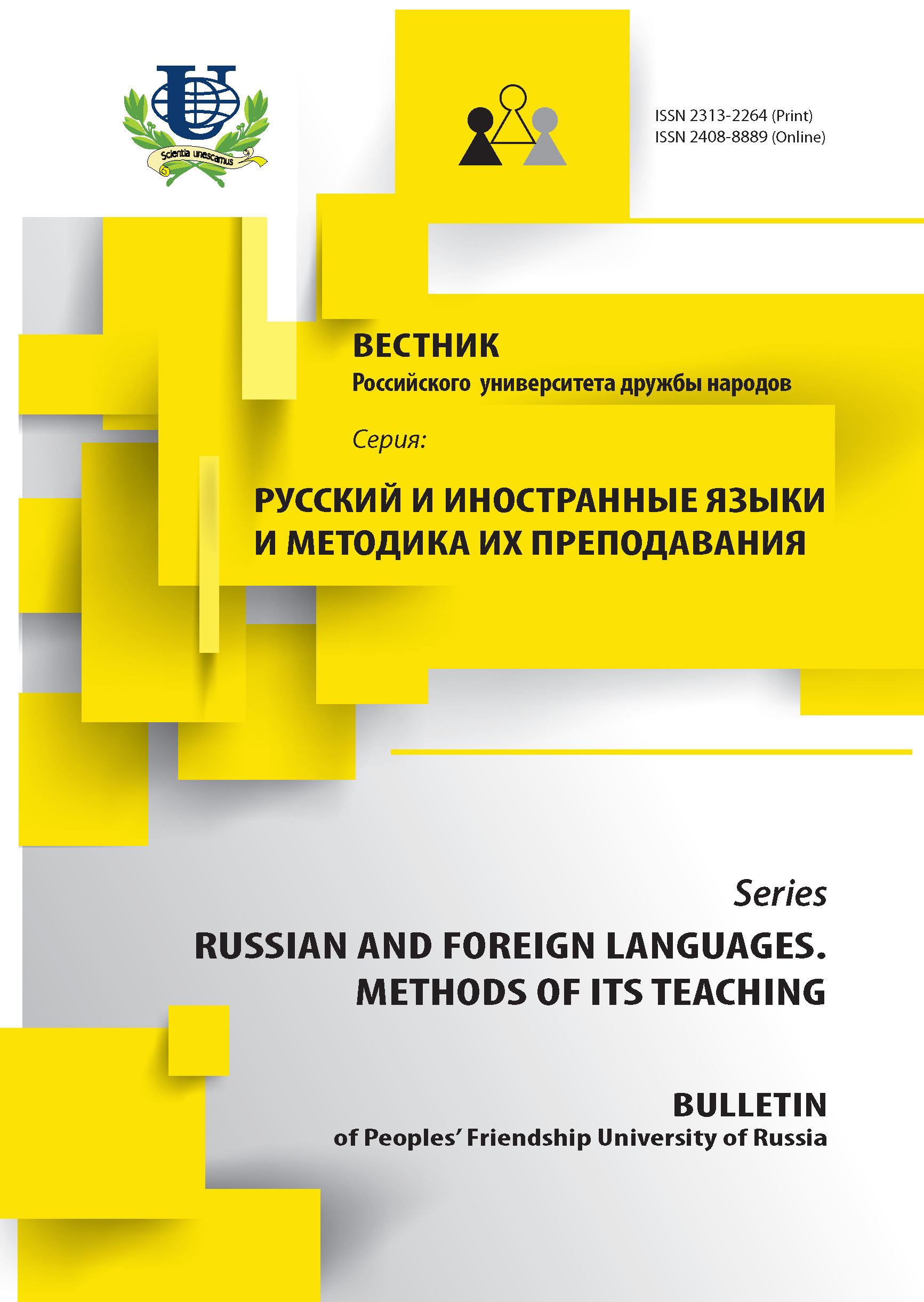RESEARCH METHODOLOGY AS ONTOLOGY OF MODERN EDUCATION
- Authors: Abbasova AA1, Khilkevich SV1, Iurmanova SA1
-
Affiliations:
- Peoples’ Friendship University of Russia
- Issue: No 4 (2015)
- Pages: 224-233
- Section: Articles
- URL: https://journals.rudn.ru/russian-language-studies/article/view/13534
Cite item
Full Text
Abstract
The article discusses issues related to emergence and development of methods of teaching Russian as a native and as a foreign language. Teaching Russian as a foreign language has its own characteristics that distinguish it from both the mastery of their native language, as well as from other educational training or special subjects. The concept of “working knowledge of a foreign language” refined and detailed, depending on the level of development of techniques and related sciences. The dynamics of the interpretation of the goal of learning a foreign language reflects the essence of technique as a science. Almost from its inception scientific methods of teaching Russian language professed ideas of the conscious, creative approach to learning; however, as far these ideas and are not widely used, it is possible to conclude that the common understanding of the approach is not sufficient for its practical application. On the one hand, it seems obvious desire to “harmonize” training (i.e., pay equal attention to both written and oral forms of speech activity); On the other hand, an important factor is the purpose of the student: how it intends to apply this knowledge.
About the authors
A A Abbasova
Peoples’ Friendship University of RussiaFaculty of re-training of Russian as a foreign language
S V Khilkevich
Peoples’ Friendship University of RussiaFaculty of re-training of Russian as a foreign language
S A Iurmanova
Peoples’ Friendship University of RussiaFaculty of re-training of Russian as a foreign language
References















